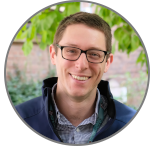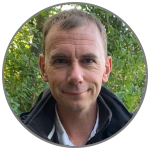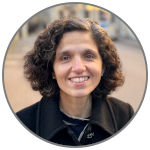The integration of Machine Learning and AI with the brightest minds in the biological sciences unlocks immense potential for groundbreaking discoveries. Scientists in the School of Biological Sciences are harnessing the power of machine learning and large-scale data to drive innovation across three core areas: breakthrough biology; transforming health; and environmental resilience.
Breakthrough Biology
Cambridge scientists are applying machine learning technologies across biological systems, from tracking DNA replication and repair processes within cells, to modelling cellular growth and regeneration, and developing neural models of learning and memory. These interdisciplinary approaches are having transformative impact in unravelling the complexities of biological system and will rapidly drive knowledge expansion and real-world impacts.
Transforming Health
AI and Machine Learning had the potential to significantly transform our approach to human health, and researchers in the School are harnessing this opportunity across numerous areas, including: the development of diagnostic and predictive models of complex diseases linked to the gut microbiome; applying AI technology to create tools for diagnosis and treatment of brain mental health disorders; and accelerating drug discovery with enhanced screening of drug receptors and their binding partners. Working collaboratively with industry partners and clinicians, these new discoveries have the potential to transform the future of human health.
Environmental Resilience
Researchers working to understand the complexities of organisms, evolutions and environmental resilience are leveraging the power of AI and Machine Learning to accelerate progress in this priority area. Our scientists are harnessing the latest technology across a range of projects, including: automating species identification and driving understanding of the earliest life on earth; monitoring and trailing endangered species as part of important conservation work; and identifying and monitoring pathogens in plants, animals and humans to inform disease modelling and intervention strategies. Combining world-leading expertise on organisms, evolutions and the environment with the power of AI and machine learning will drive novel solutions to some of the most pressing challenges the planet currently faces.
Recent Highlights
#Research
Early warning tool will help control huge locust swarms
A new tool that predicts the behaviour of desert locust populations will help national agencies to manage huge swarms before they devastate food crops in Africa and Asia.
#Funding
Using AI to tackle society's biggest challenges
Researchers in the School of Biological Sciences have been awarded funding to support projects using AI to tackle societal challenges.
#Research
AI algorithm accurately detects heart disease in dogs
Researchers have developed a machine learning algorithm to accurately detect heart murmurs in dogs, one of the main indicators of cardiac disease, which affects a large proportion of some smaller breeds such as King Charles Spaniels.
Academic Leads
Work with us
We welcome opportunities to collaborate with industry partners, policy makers and academics. If you are interested in working with us, please contact Dr Abi Herrmann, Research Strategy Manager.
Contributing Researchers
Breakthrough Biology
Paul Bays, Psychology
Michael Boemo, Pathology
Albert Cardona, Physiology, Development and Neuroscience
Lucy Cheke, Psychology
Stephen Eglen, Applied Mathematics and Theoretical Physics
Stephen Graham, Pathology
Brian Hendrich, Cambridge Stem Cell Institute
Florian Hollfelder, Biochemistry
Henrik Jönsson, Sainsbury Laboratory
Graham Ladds, Pharmacology
Máté Lengyel, Engineering
Flavia Mancini, Engineering
Catherine Merrick, Pathology
Gos Micklem, Genetics
Eric Miska, Biochemistry
Leila Muresan, Physiology, Development and Neuroscience
Francois Nedelec, Sainsbury Laboratory
Timothy O'Leary, Engineering
Transforming Health
Sarah Aitken, MRC Toxicology Unit
Alexandre Almeida, Veterinary Medicine
Steven Bell, Oncology
Richard Bethlehem, Psychology
Michael Boemo, Pathology
Lucy Cheke, Psychology
Usha Goswami, Psychology
Jonathan Heeney, Veterinary Medicine
Zoe Kourtzi, Psychology
Graham Ladds, Pharmacology
Rebecca Lawson, Psychology
Vito Menella, MRC Toxicology Unit
Catherine Merrick, Pathology
Chris Rodgers, Clinical Neurosciences
Henrik Salje, Genetics
Guy Williams, Wolfson Brain Imaging Centre
Environmental Resilience
Andrew Balmford, Zoology
David Coomes, Plant Sciences
Lynn Dicks, Zoology
Sebastian Eves-van den Akker, Plant Sciences
Beverley Glover, Plant Sciences
Henrik Jönsson, Sainsbury Laboratory
Johannes Kromdijk, Plant Sciences
Adria LeBoeuf, Zoology
Emily Mitchell, Zoology
Timothy O'Leary, Engineering
Kiran Patil, MRC Toxicology Unit
Henrik Salje, Genetics
William Sutherland, Zoology









